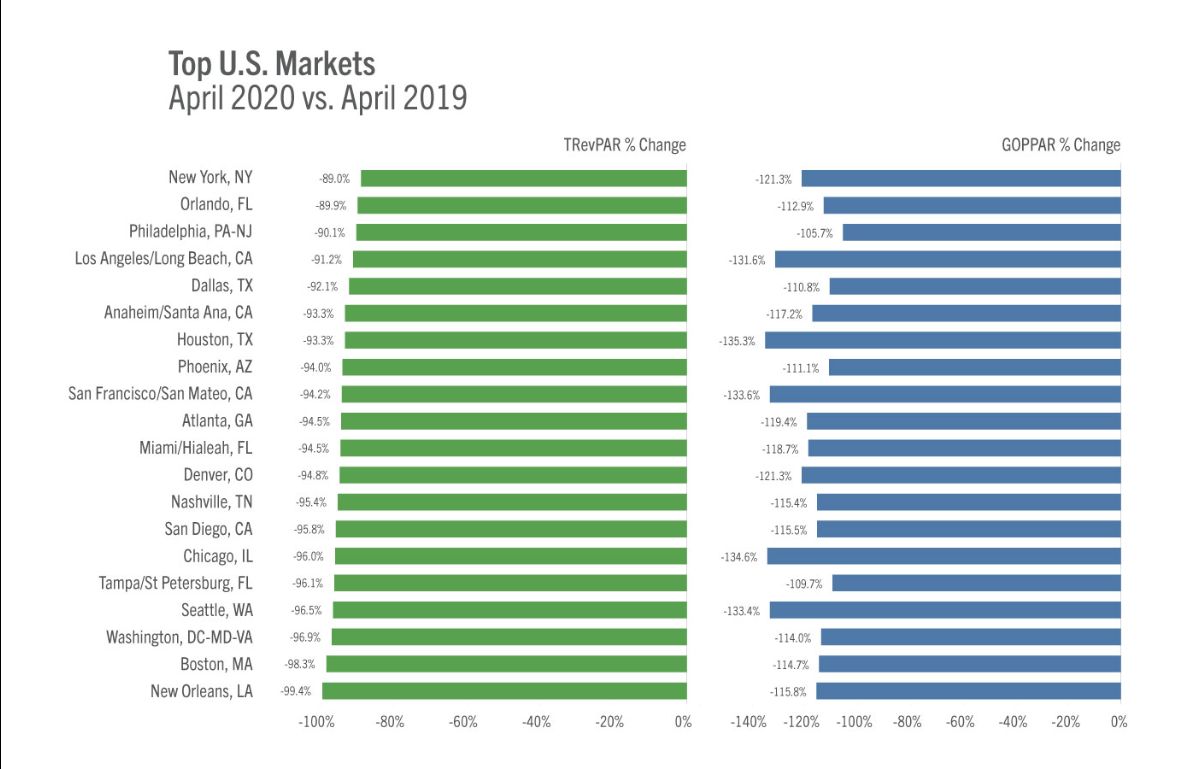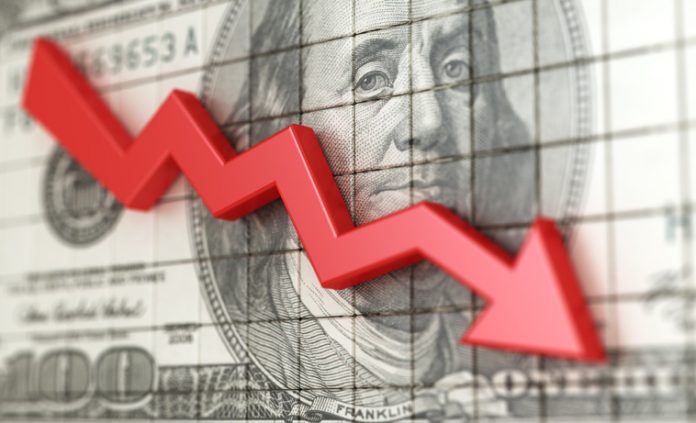BROOMFIELD, Colo. — U.S. hotel gross operating profit per available room (GOPPAR) fell 116.9 percent during April 2020, according to the latest monthly P&L data release from STR.
April 2020 vs. April 2019
GOPPAR: -116.9% to -$17.98
TRevPAR: -92.9% to $17.39
EBIDTA PAR: -140.2% to -$32.30
LPAR: -72.8% to $20.80
In a year-over-year comparison with April 2019, the industry reported a 116.9 percent drop in GOPPAR to -$17.98; a 92.9 percent fall in total revenue per available room (TRevPAR) to $17.39; a 140.2 percent decline in EBIDTA PAR (earnings before interest, income tax, depreciation, and amortization, per available room) to -$32.30; and a 72.8 percent reduction in LPAR (total labor costs per available room) to $20.80.
“Whereas only the later portion of March was affected, April was the country’s first full month in the COVID-19 world, and the impact on U.S. hotel profitability was historic,” said Joseph Rael, STR’s senior director of financial performance. “As we have reported, occupancy levels hit the floor near the middle of the month, leaving many properties positioned to lose money by keeping their doors open. That led to more than 5,100 temporary closures around the country.”

Among top markets, Houston reported the steepest year-over-year GOPPAR decline in April 2020 (down 135.3 percent), followed by Chicago (down 134.6 percent), and San Francisco/San Mateo (down 133.6 percent).
At a class level, luxury properties saw the worst decrease in GOPPAR in April 2020 (down 124.5 percent).
“As we’ve noted in our weekly performance releases, occupancy and ADR levels have trended upward over the last six weeks into late May,” Rael said. “It will be interesting to monitor how much revenue outside of room sales will come in when we process profitability metrics next month.”











